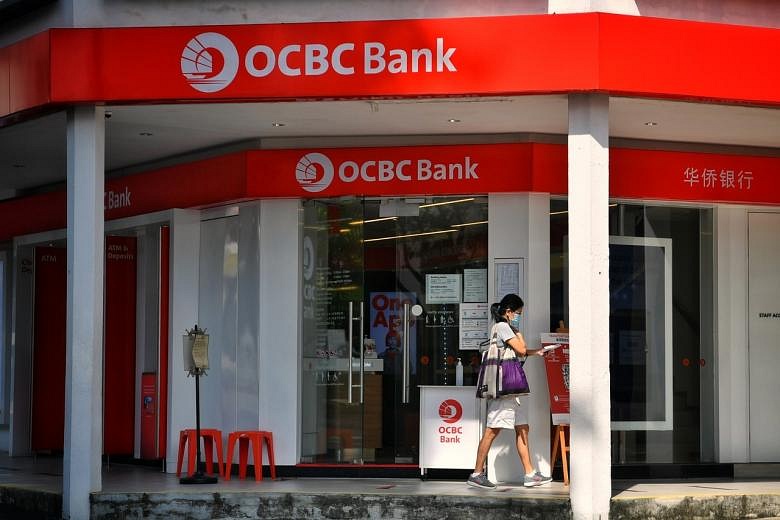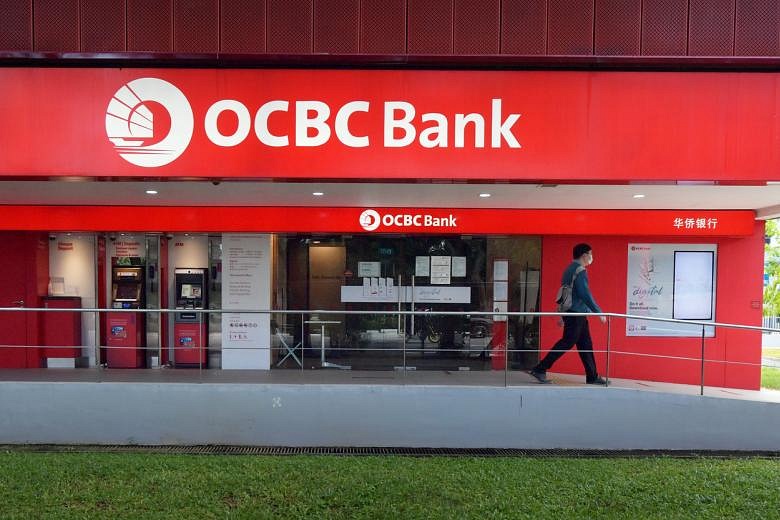https://www.straitstimes.com/singapore/dont-access-accounts-via-sms-links-ocbc-says-to-customers-what-else-you-need-to-know-to-avoid-scams
Mum of 7 kids loses $100K in OCBC SMS scam: What we know so far and how to avoid such scams

SINGAPORE - A couple in their 20s lost about $120,000 in a fake text message scam targeting OCBC Bank customers. They were among at least 469 people who reportedly fell victim to phishing scams involving the bank in the last two weeks of December in 2021.
The victims lost around $8.5 million in total.
Can such victims get their money back, or are they responsible for the funds lost? Should banks be made to pay for phishing scam losses? Meanwhile, how can you avoid being scammed in a similar way?
Young couple lost $120k in fake text message scam targeting OCBC Bank customers

It took a man and his wife five years to save about $120,000, but in just 30 minutes, scammers using a fake text message stole the money they had kept in their OCBC Bank joint savings account.
"The SMS looked like it came from OCBC and entered the usual SMS chat history from OCBC used for authentic banking services," the husband said.
"The link took me to a site that looked exactly like the OCBC login page."
Mum of seven children scammed of $100,000, but ‘fault is not mine alone’

A victim said that after she keyed in her username, password and other relevant details, and checked into her account, she received a notification stating that her transfer limit had been increased to $100,000.
When she noticed that, she immediately called OCBC as she had not approved this. However, “OCBC's hotline is not equipped to immediately handle scams which are in progress”.
She had to navigate an automated system for a long time before reaching a person. In just a few minutes, almost $100,000 was gone.
OCBC Bank has made goodwill payments to SMS scam victims since Jan 8

OCBC Bank said on Monday (Jan 17) that it has already been making goodwill payments to customers who lost funds from their bank accounts in a recent spate of SMS phishing scams.
The bank said it has been doing so since Jan 8 and more than 30 customers have received the payments so far.
"The payouts to this group of customers are made on goodwill basis after thorough verification, taking into account the circumstances of each case," OCBC said, adding that affected customers will be contacted as soon as the review and validation process for their cases is completed.
OCBC SMS scams: Bank conducting probe into gaps in processes, MAS considering actions to be taken

OCBC Bank will be conducting a thorough probe to identify the deficiencies in its processes and implement the necessary measures to address them after a spate of SMS phishing scams, said the Monetary Authority of Singapore (MAS) on Monday (Jan 17).
Following the review, MAS, the country's financial sector regulator, will consider the appropriate supervisory actions.
Nearly 470 customers lost at least $8.5 million to fraudulent fund transfers in December last year after scammers posed as OCBC and sent SMSes with links to phishing sites to victims.
Can bank stop funds transfer by scammer if you immediately report incident to it?

Here’s a scenario: You received a call from a scammer who claimed to be from your telecoms provider and offered to help you resolve your Internet issues. You were tricked into giving him remote access to your laptop and also access to your bank accounts.
When you realised that something was amiss, you hung up and immediately reported the incident to the bank. Can the bank stop the funds transfer entered by the scammer?
Here’s what a bank’s head of group corporate security said.
Can fraud victims get their money back if they were the ones who gave scammers bank details?

Victims misled into giving out their banking details in phishing scams are often responsible for the funds lost, especially if bank information technology systems are up to mark and not compromised, say lawyers.
"The banks may not be responsible for money that you have lost through fraud, especially if you had authorised the transaction, and even if you were tricked into doing so," says a lawyer.
However, financial institutions can be held liable if they are found to be negligent or have breached their contracts with customers, such as by not patching their systems regularly.
Commentary: Make banks pay for phishing scam losses

Are banks too complacent and slow in taking the necessary steps to safeguard their clients' money? Editor-at-large Han Fook Kwang commented that it baffled him as to why so many of them did not send SMS messages to their clients warning them of the danger.
What will prod them to be more proactive in dealing with the problem? He wrote: “I can think of one way - make them pay, if not all, at least a substantial amount of the losses suffered by their clients.”
Under existing laws, they are not obliged to, as they will argue that the customers were negligent in falling for the scam. But “this is not satisfactory, and it is unfair for unsuspecting people to have to bear all the burden of having to look out for devious crooks who know everything about what makes a person vulnerable to these tricks”.
Is it time to phase out SMS OTPs to stem scam scourge?

SMSes are one of the weak links in the latest bank scams. One suggestion is to do away with using text messages to send OTPs because SMS OTPs can be stolen by scammers.
One stop-gap measure is to rely on physical tokens to generate the OTPs instead as it can be harder for the crooks to steal them than text messages, never mind the inconvenience of having to carry a token.
In the wake of the scams, the local banks - DBS, OCBC and UOB - have said that customers can still use hardware tokens even though some of these banks had stopped issuing them.
OCBC continues with physical tokens, reversing plan to phase them out

OCBC Bank will allow customers to continue using hardware tokens for security verifications after an earlier announcement said they would be axed.
The bank had planned to phase out the physical tokens on its online banking platform by March 31 and transition to a fully digital authentication process. But it has reversed that position, as its head of global consumer financial services noted on Jan 7.
Security has become increasingly important to local banks given a sharp rise in phishing scams. OCBC has also stopped sending SMSes with links in them in light of the incidents.
- Latest headlines and exclusive stories
- In-depth analyses and award-winning multimedia content
- Get access to all with our no-contract promotional package at only $0.99/month* for the first 3 months
* Terms and conditions apply
Join ST's Telegram channel here and get the latest breaking news delivered to you.
Comments